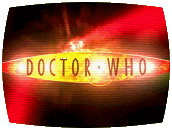 The Doctor and Martha are on the run from alien pursuers, who have the ability to track the TARDIS. The Doctor stores his own knowledge and personality in a pocketwatch fashioned from Time Lord technology – as well as detailed genetic information – and turns himself, both physically and psychologically, into John Smith, history teacher, a perfectly ordinary human (with odd gaps in his memory) teaching at a boys’ school in 1913, on the eve of the First World War. Martha is left to fend for herself, but stays close to “John Smith” in the guise of his maid and guards the pocketwatch containing his true essence with her life. In the process of discovering what it means to be human, the former Time Lord falls in love with a local woman who is attracted to his simplicity and gentle nature – but when the aliens come to Earth, discovering that they have done business with a Time Lord and trying to track down his regenerative DNA to save their dying race, “Doctor John Smith” must risk everything and everyone to protect his fellow humans.
The Doctor and Martha are on the run from alien pursuers, who have the ability to track the TARDIS. The Doctor stores his own knowledge and personality in a pocketwatch fashioned from Time Lord technology – as well as detailed genetic information – and turns himself, both physically and psychologically, into John Smith, history teacher, a perfectly ordinary human (with odd gaps in his memory) teaching at a boys’ school in 1913, on the eve of the First World War. Martha is left to fend for herself, but stays close to “John Smith” in the guise of his maid and guards the pocketwatch containing his true essence with her life. In the process of discovering what it means to be human, the former Time Lord falls in love with a local woman who is attracted to his simplicity and gentle nature – but when the aliens come to Earth, discovering that they have done business with a Time Lord and trying to track down his regenerative DNA to save their dying race, “Doctor John Smith” must risk everything and everyone to protect his fellow humans.
written by Paul Cornell
directed by Charles Palmer
music by Murray GoldGuest Cast: Jessica Hynes (Joan Redfern), Rebekah Staton (Jenny), Thomas Sangster (Tim Latimer), Harry Lloyd (Baines), Tom Palmer (Hutchinson), Gerard Horan (Clark), Lauren Wilson (Lucy Cartwright), Pip Torrens (Rocastle), Matthew White (Phillips), Derek Smith (Doorman), Peter Bourke (Mr. Chambers)
Notes: This episode and its second part, The Family Of Blood, were adapted by Paul Cornell from his own 1995 Doctor Who New Adventures novel of the same name. Numerous changes were made, including the omission of the book’s meeting between the Doctor’s companion and a “future” tenth Doctor (actually one of the aliens in disguise, and “future” since that
book originally featured the seventh Doctor as played by Sylvester McCoy). In the original novel, the “family” didn’t take over human host bodies, but were instead shapeshifters called Aubertides. One carryover from the book is the metafictional mention that “Sydney and Verity” were Smith’s parents’ names, a nod to the creator of Doctor Who and its first producer, Sydney Newman and Verity Lambert. A book of sketches by “John Smith” reveals the faces of all of the past Doctors, though they’re not all clearly seen on screen; these sketches also put to rest the running fan debate about whether or not Paul McGann is “official” as the eighth Doctor (he is).
LogBook entry & review by Earl Green
Review: I’m so torn on this one, because it’s one of those cases where I read the book first, and I fully understand why it has consistently remained at the top of the fan polls of 1990s Doctor Who print fiction. In its original form, Human Nature was an amazing, and amazingly touching, story – could it survive intact on television, crammed into two 45-minute episodes?
It must be said that the first half of this two-parter is closer to the details of the book than the second. Even then, it has the feeling of being incredibly compressed: John Smith’s burgeoning interest in Joan seems to blossom quite suddenly, where it had some room to breathe in the novel. Chalk that up to the evil necessities of the medium of television, I suppose. The nascent Martha-Smith-Joan love triangle doesn’t help matters much, as it takes time away that could’ve been spent on furthering the Smith-Joan relationship at a more reasonable pace.
Taken on its own merits, Human Nature is still quite the atypical Doctor Who story, quite unlike anything that’s come before, and that’s the charm of the novel as well. It’s based on quite simply the best Doctor Who story ever put on the printed page, so one can see why it was poached for the new series (even if it completely buggers continuity – how same the same stuff happen to the same Time Lord twice, to paraphrase Bruce Willis?) But I can’t help but feel that, even in the more faithful half of that adaptation, some of what made the original story so compelling was lost.

